Unlocking the Secrets of a Successful Beauty Advisor

The beauty industry is a rapidly growing field, and with it comes the increasing demand for professionals who can provide expert advice and guidance to customers. Beauty advisors are essential in this industry, providing customers with recommendations and information on skincare and makeup products.
In this article, we explore the qualifications, tasks, and expectations of a beauty advisor, as well as strategies they can use to increase their income. We also discuss the work environment settings, education and training, and career paths available to beauty advisors. Whether you're considering a career as a beauty advisor or are interested in learning more about this field, this article provides valuable insights and information to help you succeed in the beauty industry.
Position Overview
A beauty advisor is a professional who provides advice and guidance to individuals regarding their beauty and skincare needs. Beauty advisors are typically employed by beauty brands or retailers and may work in department stores, beauty salons, or other locations where beauty products are sold.
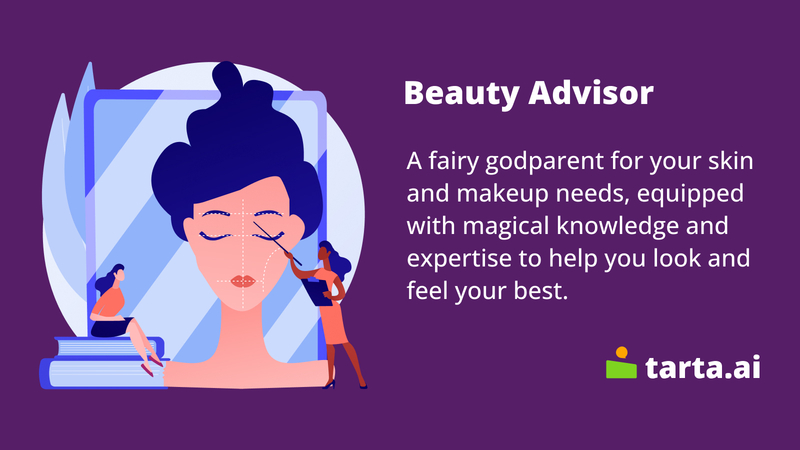
Key Qualifications
Some key qualifications for a beauty advisor include:
- Knowledge of skincare and makeup: Understanding of skincare and makeup products and techniques, including different skin types, ingredients, and formulations.
- Communication skills: Strong communication skills are essential for beauty advisors, as they need to be able to listen to customers' concerns and provide clear and helpful advice.
- Sales skills: Promoting and selling products, so they should be comfortable with sales techniques and able to persuade customers to make purchases.
- Interpersonal skills: Being friendly, approachable, and personable is important for building relationships with customers and making them feel comfortable asking for advice.
- Attention to detail: Being detail-oriented to ensure they are providing accurate advice and recommendations.
- Adaptability: The beauty industry is constantly changing, so beauty advisors need to be able to adapt to new products, trends, and techniques.
- Professionalism: Maintaining a professional demeanor at all times and representing the brand they work for in a positive manner.
Interesting fact:
The beauty advisor role has been around for over a century, with the first cosmetic counters in department stores appearing in the early 1900s.
Tasks and Expectations
Some of the tasks and expectations of a beauty advisor may include:
- Providing customer service: This includes greeting customers, answering their questions, and making recommendations based on their individual needs.
- Demonstrating and recommending products: Having a strong understanding of the products they sell and being able to demonstrate how to use them. Beauty advisors should be able to recommend products that will best suit each customer's needs and preferences.
- Building relationships with customers: Beauty advisors should be able to connect with customers on a personal level and make them feel valued and appreciated.
- Meeting sales goals: Beauty advisors should be comfortable with sales techniques and able to persuade customers to make purchases.
- Staying up-to-date with industry trends: The beauty industry is constantly evolving, and beauty advisors should stay up-to-date with the latest trends and products. They should be knowledgeable about new product launches and able to make recommendations accordingly.
- Maintaining a clean and organized work environment: This includes keeping the shelves and displays tidy and ensuring that products are always well-stocked and available for customers.
- Participating in training and development: Beauty advisors may participate in training and development programs to improve their product knowledge, sales skills, and customer service skills. They should be willing to learn and grow in their role.
So, a beauty advisor is a professional who provides guidance and advice to individuals regarding their beauty and skincare needs. Key qualifications for a beauty advisor include knowledge of skincare and makeup, strong communication and sales skills, attention to detail, adaptability, and professionalism. Tasks and expectations of a beauty advisor may include providing excellent customer service, demonstrating and recommending products, building relationships with customers, meeting sales goals, staying up-to-date with industry trends, maintaining a clean work environment, and participating in training and development.
Compensation
The salary of a beauty advisor in the US can vary depending on several factors such as experience, location, and the type of employer. According to PayScale, the average base pay for a beauty advisor in the US is around $29,500 per year. However, this can range from around $21,000 to over $38,000 per year, depending on the aforementioned factors.
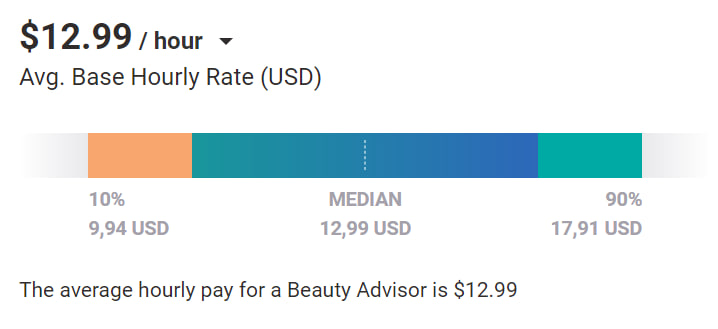
Source: PayScale
Strategies for Increasing Income
Here are some strategies that a beauty advisor can use to increase their income:
Strategy | Description |
Expand your client base | As a beauty advisor, your income is directly related to the number of clients you have. Therefore, it is essential to continually build your client base by networking, providing excellent customer service, and utilizing social media platforms to promote your services. |
Upsell and cross-sell | Encourage clients to purchase additional products or services during their visit. For example, if a client is interested in a certain makeup item, suggest a complementary product or service that will enhance their experience. |
Attend additional training and education | Keep up-to-date with the latest trends, techniques, and products in the beauty industry by attending additional training and education opportunities. This will help you offer a wider range of services and become more valuable to your clients. |
Offer packages and promotions | Create packages and promotions to attract new clients and retain existing ones. For example, offer a discounted package deal for clients who book multiple services or purchase a certain amount of products. |
Increase your availability | Offer extended hours, including weekends and evenings, to accommodate clients with busy schedules. This will give you a competitive edge and increase your earning potential. |
Build your brand | Establish yourself as an expert in the industry by building your personal brand. Use social media platforms to showcase your work, create blog posts, and share your knowledge with others. |
Consider freelancing or working independently | If you have an established client base and the necessary skills, consider working independently or freelancing. This will allow you to set your own rates and increase your earning potential. |
Interesting fact:
Beauty advisors often work on a commission-based pay system, which means their income is directly tied to how much they sell.
Supplementary Perks
Here are some supplementary perks that beauty advisors may receive from their employers:
- Employee discounts: Beauty advisors may receive discounts on products and services offered by their employer. This can be a great benefit for beauty advisors who are passionate about the products they sell.
- Commission-based pay: Many beauty advisors receive a base salary, plus commission on sales. This can be a significant supplement to their income and provide motivation to increase sales.
- Health benefits: Some employers offer health benefits, such as medical, dental, and vision insurance, to their beauty advisors. This can be an important benefit for those who rely on their employer for health coverage.
- Retirement savings plans: Employers may offer retirement savings plans, such as a 401(k) or IRA, to their beauty advisors. This can be a valuable benefit for those who want to save for their future.
- Training and education opportunities: Employers may provide training and education opportunities for their beauty advisors, such as attending industry conferences or receiving advanced training in certain areas. This can be a great benefit for those who want to expand their skills and knowledge.
- Paid time off: Beauty advisors may receive paid time off for vacations, sick days, and personal days. This can be a valuable benefit for those who need time off for various reasons.
- Flexible schedules: Employers may offer flexible schedules, such as part-time or full-time, to their beauty advisors. This can be a great benefit for those who need flexibility in their work schedule.
Overall, a beauty advisor's salary in the US can range from $21,000 to over $38,000 per year, depending on factors such as location, experience, and type of employer. There are several strategies that a beauty advisor can use to increase their income, including expanding their client base, upselling and cross-selling, attending additional training and education, offering packages and promotions, increasing availability, and building their brand. Beauty advisors may also receive supplementary perks from their employers, such as employee discounts, commission-based pay, health benefits, retirement savings plans, training and education opportunities, paid time off, and flexible schedules.
Work Environment
In this section, we will discuss the role of beauty advisors, the skills and qualifications required to become one, the tools and technologies used in the profession, and the work environment settings that are necessary to provide excellent service to customers.
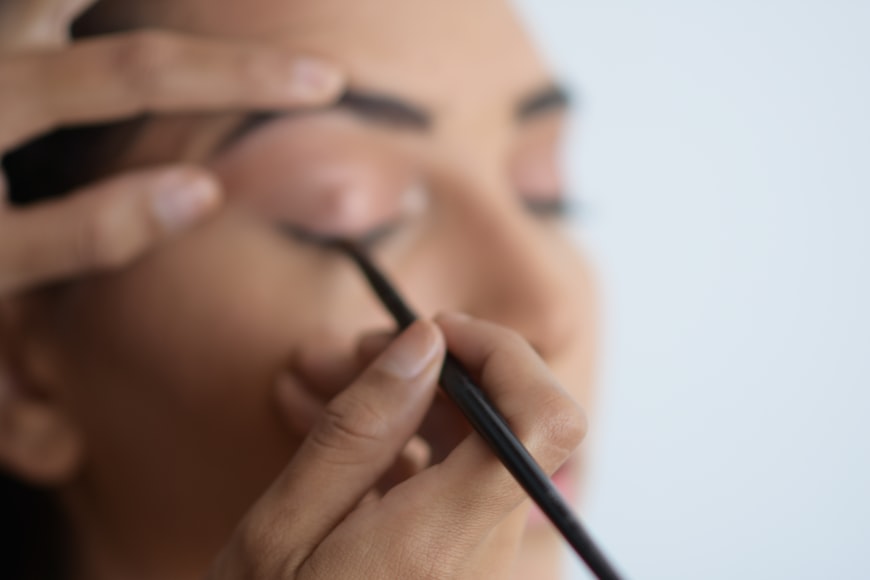
Photo: Chalo Garcia/Unsplash
Work Environment Settings
Beauty advisors typically work in a retail setting, such as a department store or a specialty beauty store. The work environment settings for beauty advisors are important because they can affect the customer experience, employee productivity, and overall satisfaction. Here are some key considerations for setting up a work environment for beauty advisors:
- Lighting: Good lighting is essential for beauty advisors to accurately assess a customer's skin tone and apply makeup. Natural light is the best option, but if that's not available, bright, white LED light is a good alternative.
- Display and organization: The work area should be organized and visually appealing to attract customers and make it easy for beauty advisors to find and display products. This can be achieved through the use of attractive displays and product organization systems.
- Comfortable seating: Beauty advisors often spend a lot of time on their feet, so comfortable seating is important to provide rest and reduce fatigue during slower periods.
- Cleanliness: A clean work environment is critical in the beauty industry. It's important to ensure that the work area is free of dust, debris, and clutter.
- Privacy: Customers may feel more comfortable discussing personal beauty concerns in a private setting. Private consultation areas can be set up with screens or curtains.
- Sound: Music or sound can create a more relaxed and enjoyable atmosphere for customers. However, it's important to keep the volume at a level that doesn't interfere with customer conversations or disturb other employees.
A well-designed work environment can help to create a positive and professional atmosphere for beauty advisors and customers alike.
Interesting fact:
Virtual try-on technology, which allows customers to try on makeup virtually, is becoming more popular in the beauty industry and is now used by many beauty advisors.
Tools and Technologies
Beauty advisors use a variety of tools and technologies to provide excellent service to their customers. Here are some examples of tools and technologies that beauty advisors commonly use:
Tools and Technologies | Description |
Makeup Brushes | Makeup brushes are essential tools for applying and blending makeup. Different types of brushes are used for various parts of the face, such as the eyes, lips, and cheeks. |
Skincare Devices | Beauty advisors may use skincare devices, such as cleansing brushes, facial steamers, or LED light therapy devices, to provide a more comprehensive skincare experience for their customers. |
Makeup Palettes | A makeup palette is a collection of colors and shades that can be used to create a variety of looks. Beauty advisors may use premade palettes or create their own custom palettes. |
Makeup Applicators | Makeup applicators, such as sponges and puffs, can be used to apply foundation, concealer, or powder. |
Virtual Try-On Tools | Virtual try-on tools allow customers to see how different makeup products look on their face without having to apply the product physically. Beauty advisors may use these tools to help customers find the right shade or color. |
Point of Sale (POS) Systems | Beauty advisors use POS systems to process sales transactions and manage inventory. These systems can also provide real-time data on sales trends and customer preferences. |
Customer Relationship Management (CRM) Software | CRM software allows beauty advisors to keep track of customer information, including their preferences and purchase history. This information can be used to personalize recommendations and provide a better customer experience. |
Beauty advisors use a combination of traditional tools and innovative technologies to provide personalized and effective beauty advice to their customers.
Education and Training
Education and training for beauty advisors typically include a combination of formal education, on-the-job training, and continuing education. Here are some of the key elements:
- Formal Education: Many beauty advisors have a high school diploma or equivalent. However, some employers prefer candidates with an associate or bachelor's degree in cosmetology, esthetics, or a related field. These programs can provide a foundation in anatomy and physiology, skin care, makeup application, and other relevant topics.
- On-the-Job Training: Once hired, beauty advisors receive hands-on training from their employers. This includes learning about the products they will be selling, how to interact with customers, and how to perform services such as makeup application and skin analysis.
- Continuing Education: Beauty advisors must stay up to date on the latest trends, products, and techniques in the beauty industry. Many employers provide ongoing training and education opportunities to their staff, including workshops, seminars, and online courses.
In addition to these formal training opportunities, successful beauty advisors also possess excellent customer service skills, strong communication skills, and a passion for helping customers look and feel their best. They also have a deep understanding of their customers' needs, preferences, and concerns, and are able to provide personalized recommendations and advice.
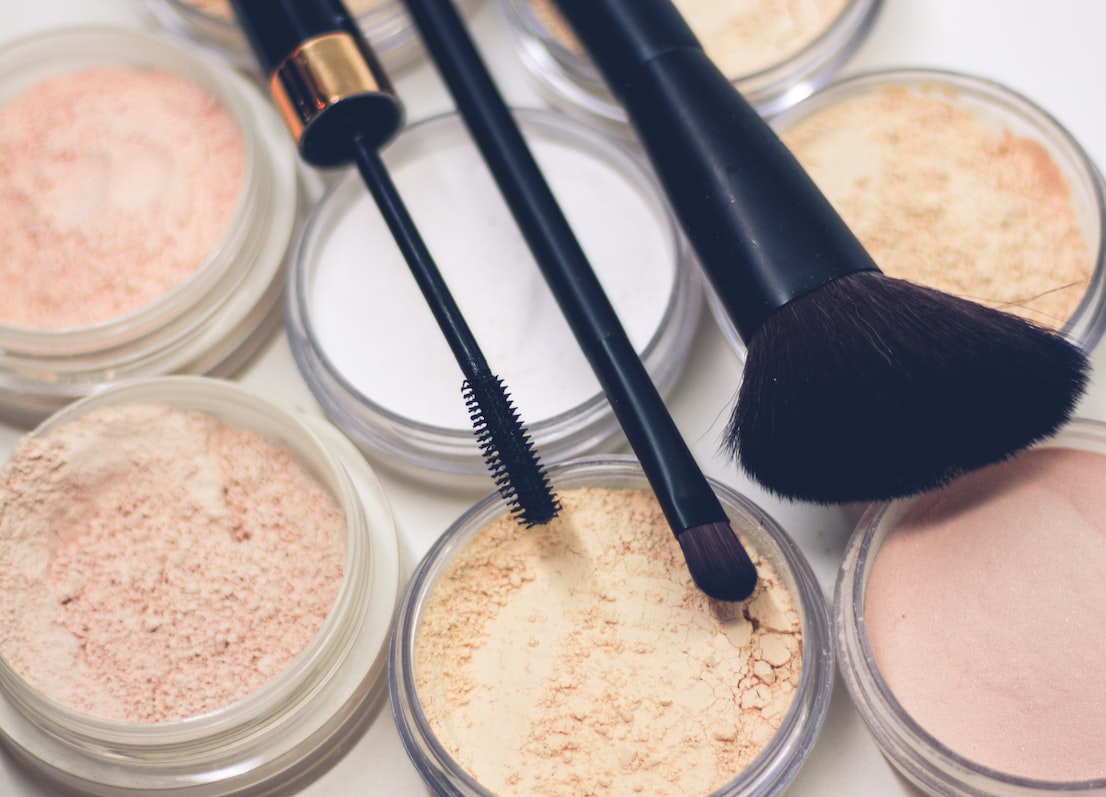
Photo: Raphael Lovaski/Unsplash
Advancement Opportunities
The beauty industry is constantly growing, and there are many opportunities for those who are passionate about beauty and helping others feel their best. Whether you're just starting out in the industry or looking to take your career to the next level, there are steps you can take to develop your skills and build a successful career as a beauty advisor.
In this section, we'll explore the different paths you can take in the beauty industry, specializations within the field, and other career possibilities for beauty professionals. Let's dive in and learn more about how you can develop your career in the exciting world of beauty!
Steps to Develop a Beauty Advisor Career
If you're interested in developing a career as a beauty advisor, here are some steps that you can take:
- Research the industry: Before pursuing a career as a beauty advisor, it's essential to research the industry thoroughly. Learn about the different job roles and what skills and qualifications are required.
- Develop your knowledge and skills: Beauty advisors need to have a good understanding of skincare, makeup, and haircare. You can develop your knowledge and skills by attending beauty courses, workshops, and seminars.
- Gain experience: It's essential to gain practical experience in the beauty industry. Look for internships or part-time jobs at beauty salons, makeup stores, or department stores. This will give you hands-on experience and allow you to build your network in the industry.
- Build your network: Attend beauty events and conferences, join online beauty communities, and connect with industry professionals on social media. Building your network will help you stay up-to-date on industry trends and job opportunities.
- Create a portfolio: A portfolio showcasing your work and skills can be a valuable tool for demonstrating your expertise to potential employers. Include pictures of makeup, hair, or skincare looks that you've created, as well as any relevant certifications or qualifications.
- Apply for jobs: Once you have the necessary qualifications, skills, and experience, start applying for beauty advisor jobs. Consider working in a department store, beauty salon, or cosmetic company. Don't forget to customize your resume and cover letter for each job application.
- Keep learning: The beauty industry is constantly evolving, and it's essential to stay up-to-date with new products, techniques, and trends. Continue attending courses, workshops, and seminars, and always be open to learning new things.
By following these steps, you can build a successful career as a beauty advisor. Remember to stay passionate and dedicated to your craft, and always keep your clients' needs and desires in mind.
Interesting fact:
Many beauty advisors are passionate about their work and consider it a form of art. Some even have their own social media platforms where they share makeup tutorials and product reviews.
Specializations in Beauty Industry
There are several specializations that beauty advisors can pursue in the beauty industry. Some of these specializations include:
Spacialization | Description |
Makeup Artistry | Makeup artistry involves creating looks for various occasions, such as weddings, photo shoots, and fashion shows. Makeup artists use their knowledge of color theory, skin types, and product application techniques to create flawless makeup looks. |
Skincare | Skincare specialists are responsible for analyzing a client's skin type and condition and recommending products and treatments to improve their skin's health and appearance. They may specialize in anti-aging, acne treatment, or other skin conditions. |
Hair Styling | Hair stylists use their knowledge of hair types and textures, cutting, and styling techniques to create beautiful haircuts and hairstyles. They may specialize in specific hair types, such as curly hair or hair extensions. |
Fragrance | Fragrance specialists are responsible for helping clients choose the perfect scent for their preferences and personalities. They may also provide advice on fragrance layering, longevity, and other fragrance-related topics. |
Sales and Marketing | Beauty advisors may specialize in sales and marketing, where they are responsible for promoting and selling beauty products to customers. They may work for cosmetic companies, beauty retailers, or department stores. |
By specializing in one or more of these areas, beauty advisors can increase their expertise and knowledge in the beauty industry and offer more specialized services to their clients.
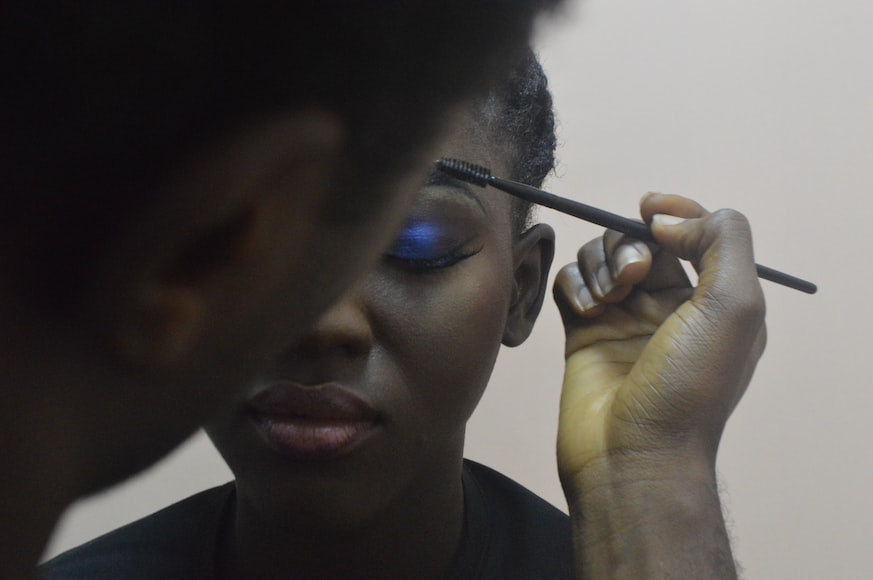
Photo: Ovinuchi Ejiohuo/Unsplash
Other Career Possibilities
In addition to working as a beauty advisor, there are several other career possibilities for beauty professionals. Here are some examples:
- Beauty Blogger or Influencer: Beauty bloggers and influencers create content about beauty products, trends, and techniques. They often have a large following on social media platforms and collaborate with brands to promote their products.
- Beauty Editor or Writer: Beauty editors and writers work for magazines, websites, and other media outlets and write articles about beauty topics. They may also review products, interview industry professionals, and attend beauty events.
- Product Development: Professionals in product development create and test new beauty products, including skincare, makeup, and hair care products. They may work for cosmetic companies or beauty retailers.
- Education and Training: Beauty professionals can also become educators or trainers, teaching others about beauty techniques, products, and trends. They may work for beauty schools, cosmetic companies, or as freelance educators.
- Spa or Salon Management: Professionals in spa or salon management oversee the day-to-day operations of a spa or salon, including managing staff, scheduling appointments, and handling customer complaints. They may also be responsible for marketing and promoting the business.
- Aesthetician or Cosmetologist: Aestheticians and cosmetologists provide beauty services to clients, including facials, waxing, hair styling, and makeup application. They may work in a salon, spa, or as a freelance professional.
These are just a few examples of the many career possibilities available for beauty professionals. By pursuing additional training, certifications, or education, beauty advisors can expand their skill set and pursue these other career paths in the beauty industry.
Interesting fact:
Beauty advisors may receive free samples of new products from their employers, which they can use to test out and recommend to their customers.
Developing a career as a beauty advisor can be a fulfilling and rewarding experience. There are many paths you can take in the beauty industry, including specializing in makeup artistry, skincare, hair styling, nail care, fragrance, sales and marketing, or pursuing other career possibilities such as beauty blogging, product development, education and training, spa or salon management, or working as an aesthetician or cosmetologist. By gaining knowledge, building your skills, and staying up to date with industry trends and innovations, you can develop your career as a beauty advisor and help your clients look and feel their best. Remember, passion, dedication, and a commitment to excellence are key ingredients to building a successful career in the beauty industry.
Employment Trends
Beauty Advisors Demand
In recent years, the beauty industry has experienced steady growth, and this has led to an increase in demand for beauty advisors. Many retailers, including department stores, drugstores, and specialty beauty stores, hire beauty advisors to provide advice and assistance to customers on skincare, makeup, and other beauty products.
With the rise of social media and influencer marketing, many people are interested in learning about new beauty products and techniques. This has led to an increased demand for beauty advisors who can provide personalized recommendations and advice.
However, the COVID-19 pandemic has had a significant impact on the beauty industry, and this may have affected the demand for beauty advisors in certain areas. Some retailers have had to reduce staffing levels or change the way they interact with customers due to social distancing guidelines and other safety measures.
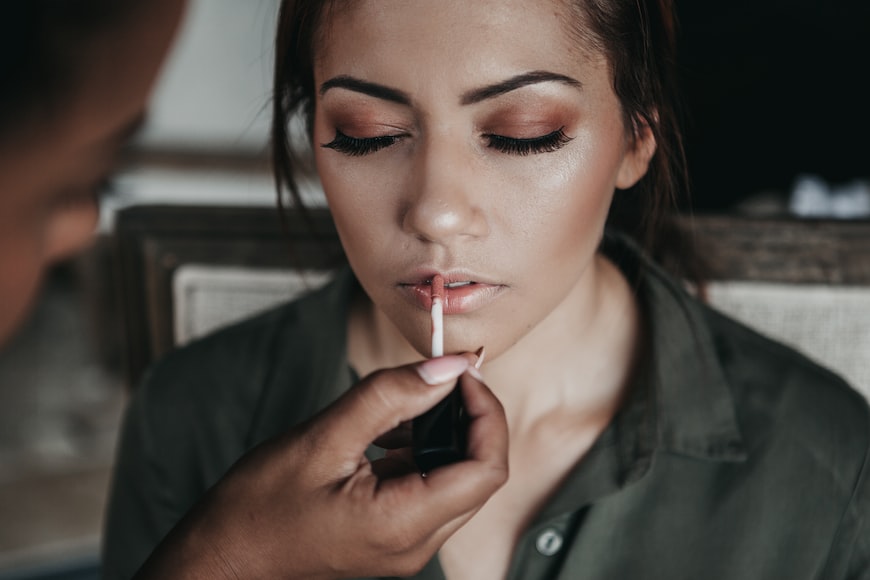
Photo: Candice Picard/Unsplash
Flexible and Remote Work Arrangements
Flexible and remote work arrangements for beauty advisors can depend on the specific employer and job requirements. In general, beauty advisors who work in physical retail environments may have less flexibility in their work arrangements, as they are often required to be on-site during specific hours to interact with customers and provide in-person services.
Some beauty companies may offer flexible work arrangements, such as part-time or seasonal positions, which could allow for more scheduling flexibility. Some beauty advisors may also have the option to work remotely for certain aspects of their job, such as administrative or marketing tasks, if their employer allows it.
With the rise of e-commerce and online beauty retailers, there may be opportunities for beauty advisors to work remotely as digital beauty consultants. This could involve providing virtual consultations, answering customer inquiries online, and creating digital content such as tutorials or product reviews.
Overall, while flexible and remote work arrangements may be more limited for beauty advisors working in physical retail environments, there may be some opportunities for remote work or flexible scheduling in certain roles or situations. As with any job, it's important to discuss your needs and preferences with your employer and explore potential options for flexibility.
Interesting fact:
Beauty advisors play an important role in helping people feel confident and beautiful, and can make a positive impact on their customers' lives.
Job Fulfillment
In this section, we will explore the pros and cons of the Beauty Advisor’s job. Whether you are just starting your career or are a seasoned professional, this information is relevant and important for anyone looking to succeed in the modern workforce.
Pros | Cons |
Opportunity to work in a fun and exciting environment. | Often required to work on weekends, evenings, and holidays. |
Chance to build relationships with clients and offer personalized advice on skincare, makeup, and other beauty products. | May need to stand for extended periods of time. |
Access to new and cutting-edge beauty products and trends. | Pressure to meet sales targets and quotas. |
Possibility of receiving discounts on beauty products. | May need to work in a fast-paced environment with high-stress levels. |
Opportunity to learn and develop skills in sales and customer service. | Dealing with difficult customers who may have unrealistic expectations or demands. |
By understanding the pros and cons of different career choices, you can make informed decisions about your future path.
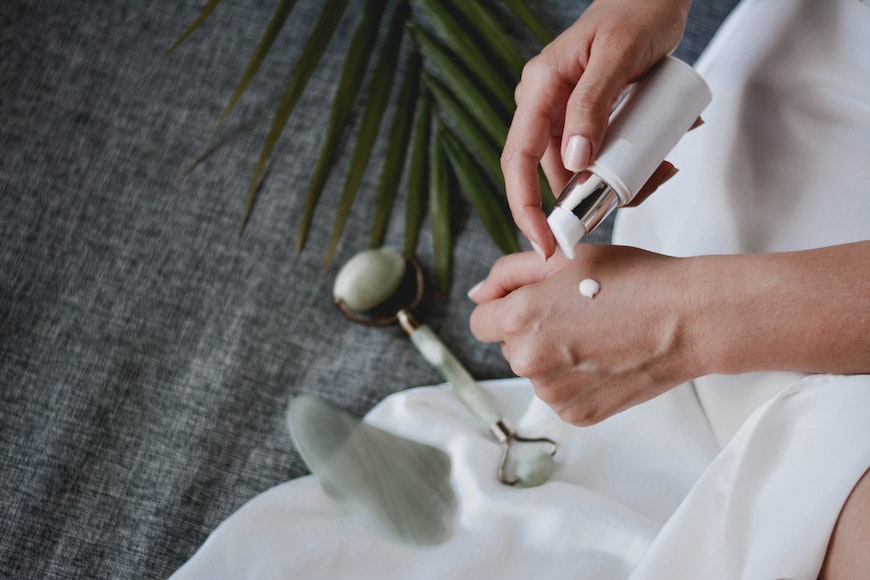
Photo: Content Pixie/Unsplash
In conclusion, the role of a beauty advisor is vital in the beauty industry, providing customers with expert advice and guidance on skincare and makeup products. With their knowledge, skills, and dedication to customer service, beauty advisors can build successful careers and make a positive impact on the lives of their clients. As the beauty industry continues to evolve, beauty advisors must adapt to meet the changing needs and preferences of customers, and stay up to date with industry trends and innovations. By pursuing education and training, building their skills, and staying committed to excellence, beauty advisors can succeed in this dynamic and exciting field. Whether you're a job seeker, a beauty professional, or someone interested in the beauty industry, this article provides valuable information and insights to help you navigate the world of beauty advising.
- Beauty advisors are professionals who provide guidance and advice to individuals regarding their beauty and skincare needs.
- Key qualifications for a beauty advisor include knowledge of skincare and makeup, strong communication and sales skills, attention to detail, adaptability, and professionalism.
- Beauty advisors can increase their income by expanding their client base, upselling and cross-selling, attending additional training and education, offering packages and promotions, increasing availability, and building their brand.
- Beauty advisors work in retail settings and use a variety of tools and technologies to help customers find the right products.
- Education and training for beauty advisors typically involve a combination of formal education, on-the-job training, and continuing education.
- Beauty advisors can specialize in makeup artistry, skincare, hair styling, nail care, fragrance, sales and marketing, or pursue other career possibilities such as beauty blogging, product development, education and training, spa or salon management, or working as an aesthetician or cosmetologist.
- The demand for beauty advisors in the US can vary depending on economic conditions and the growth of the beauty industry. The COVID-19 pandemic may have affected the demand for beauty advisors in certain areas.
- Flexible and remote work arrangements for beauty advisors can depend on the specific employer and job requirements, but may be limited for those working in physical retail environments.
FAQ
What kind of services do beauty advisors provide?
Beauty advisors provide a range of services, including product recommendations, makeup application, skincare analysis, and beauty consultations. They may also provide advice on haircare, nail care, and fragrance selection.
How do I become a beauty advisor?
To become a beauty advisor, you can start by gaining knowledge and experience in the beauty industry through training courses, internships, or working in retail. You should also develop strong communication and customer service skills to be successful in this field.
Where can I work as a beauty advisor?
Beauty advisors can work in a variety of settings, including department stores, beauty salons, spas, and cosmetic retail stores.
What is the difference between a beauty advisor and a makeup artist?
While both professions involve providing advice and recommendations on beauty-related topics, makeup artists focus primarily on the application of makeup for special events, photo shoots, and other occasions, while beauty advisors focus more broadly on skincare and makeup products and services.